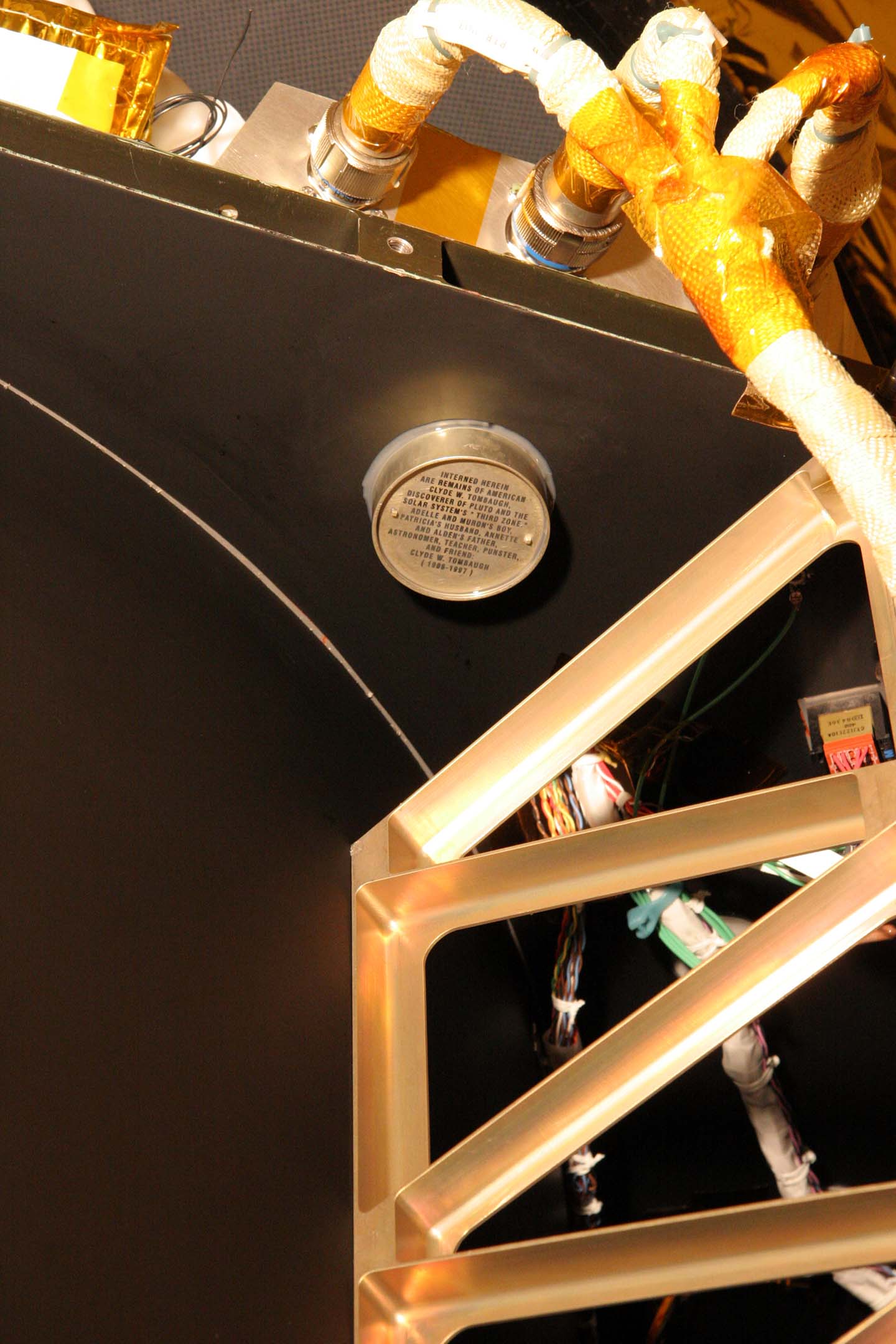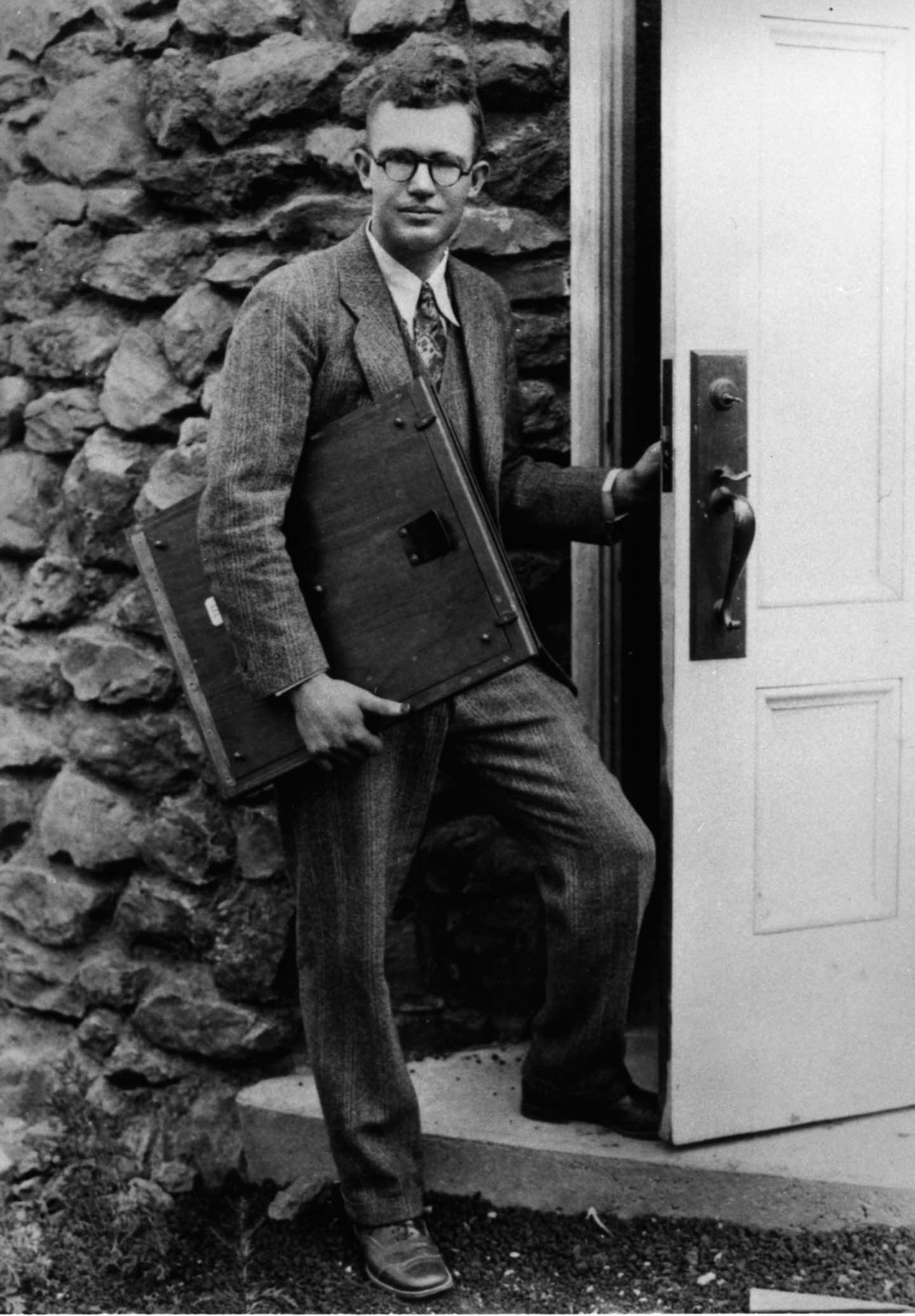Press Release
Happy 100th Birthday, Clyde Tombaugh! New Horizons Mission Salutes Pluto’s Discoverer
NASA's New Horizons Mission Salutes Pluto's Discoverer, Born Feb. 4, 1906
When the late American astronomer Clyde W. Tombaugh discovered planet Pluto 76 years ago this month, he opened the gateway to an unknown region of ancient, icy objects unlike any worlds in our solar system — and touched off a revolution in our understanding of Earth's ever-expanding planetary neighborhood.
Feb. 4, 2006, marks the 100th anniversary of Tombaugh's birth — and NASA's New Horizons spacecraft is speeding toward the planet he discovered, carrying a small amount of his ashes along with the dreams of all who, like this Kansas farm boy, gazed toward the heavens in the name of exploration and discovery. New Horizons, the first mission to Pluto, will provide the closest look ever at the ninth planet while completing the initial reconnaissance of the solar system.
"Clyde Tombaugh was a grand American, and New Horizons is a grand American adventure," says Dr. Alan Stern, New Horizons principal investigator, from Southwest Research Institute, Boulder, Colo.
Tombaugh was 24 years old and working at Lowell Observatory in Flagstaff, Ariz., when he made his landmark find in 1930 — capping a search for a "trans-Neptunian" planet in which he photographed two-thirds of the sky and spent thousands of hours examining millions of star images. Thought at first to be a planetary oddity because of its small size and strange, elliptical orbit, Pluto eventually heralded the discovery of the Kuiper Belt and the growing realization that small, icy dwarf planets are common in our solar system. The Kuiper Belt is an expansive "third zone" on the solar system's frontier that contains thousands of worlds different from both the rocky inner planets and the outer gas giants.
Tombaugh died on January 17, 1997, a few weeks shy of his 91st birthday, almost exactly nine years before New Horizons launched from Cape Canaveral Air Force Station, Fla., on Jan. 19, 2006.
In memory of the first American to discover a planet in our solar system, the piano-sized New Horizons spacecraft carries a small aluminum canister containing some of Tombaugh's cremated remains, donated by his family. These remains will fly past Pluto with New Horizons on July 14, 2015, and then on past Kuiper Belt objects in the succeeding years. New Horizons will eventually escape our solar system altogether and enter interstellar space. As such, Tombaugh's remains have become the first to be launched to the stars.
The memorial canister, about two inches wide and half-an-inch tall, is attached to the inside, upper deck of the spacecraft. It also includes an inscription penned by Stern:
Interned herein are remains of American Clyde W. Tombaugh, discoverer of Pluto and the solar system's "third zone." Adelle and Muron's boy, Patricia's husband, Annette and Alden's father, astronomer, teacher, punster, and friend: Clyde W. Tombaugh (1906-1997).
"It's a wonderful tribute," says Patricia "Patsy" Tombaugh, Clyde Tombaugh's wife of 62 years, who lives in Las Cruces, N.M. "I certainly thought of my husband when the rocket launched, because a part of him was on there. It seemed so appropriate, too, because it was so close to his 100th birthday."
"Professor Tombaugh's historic discovery of Pluto was a contribution to planetary science that we now know heralded a paradigm shift in our understanding of the geography of our home solar system," Stern says. "In many ways, his work was decades ahead of its time. It is our honor to celebrate the centenary of Clyde's birth today, and to have launched some of his remains last month on the historic mission of exploration that is New Horizons."
Stern w ill speak at a tribute to Tombaugh tomorrow at Kansas University in Lawrence, where Tombaugh earned bachelor's and master's degrees in astronomy. Set for 8 p.m. CST at the Alderson Auditorium at the Kansas Union, Stern's talk precedes a star viewing near the university's Memorial Stadium.

